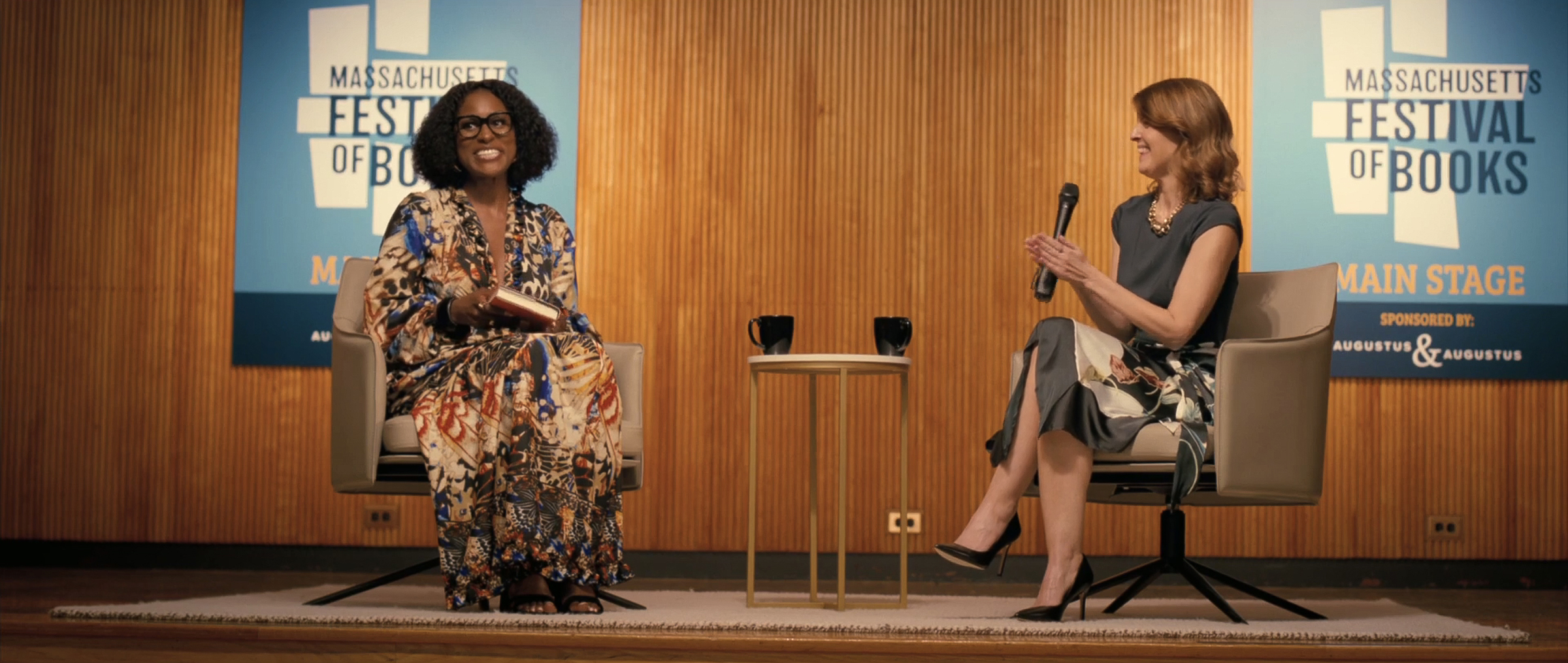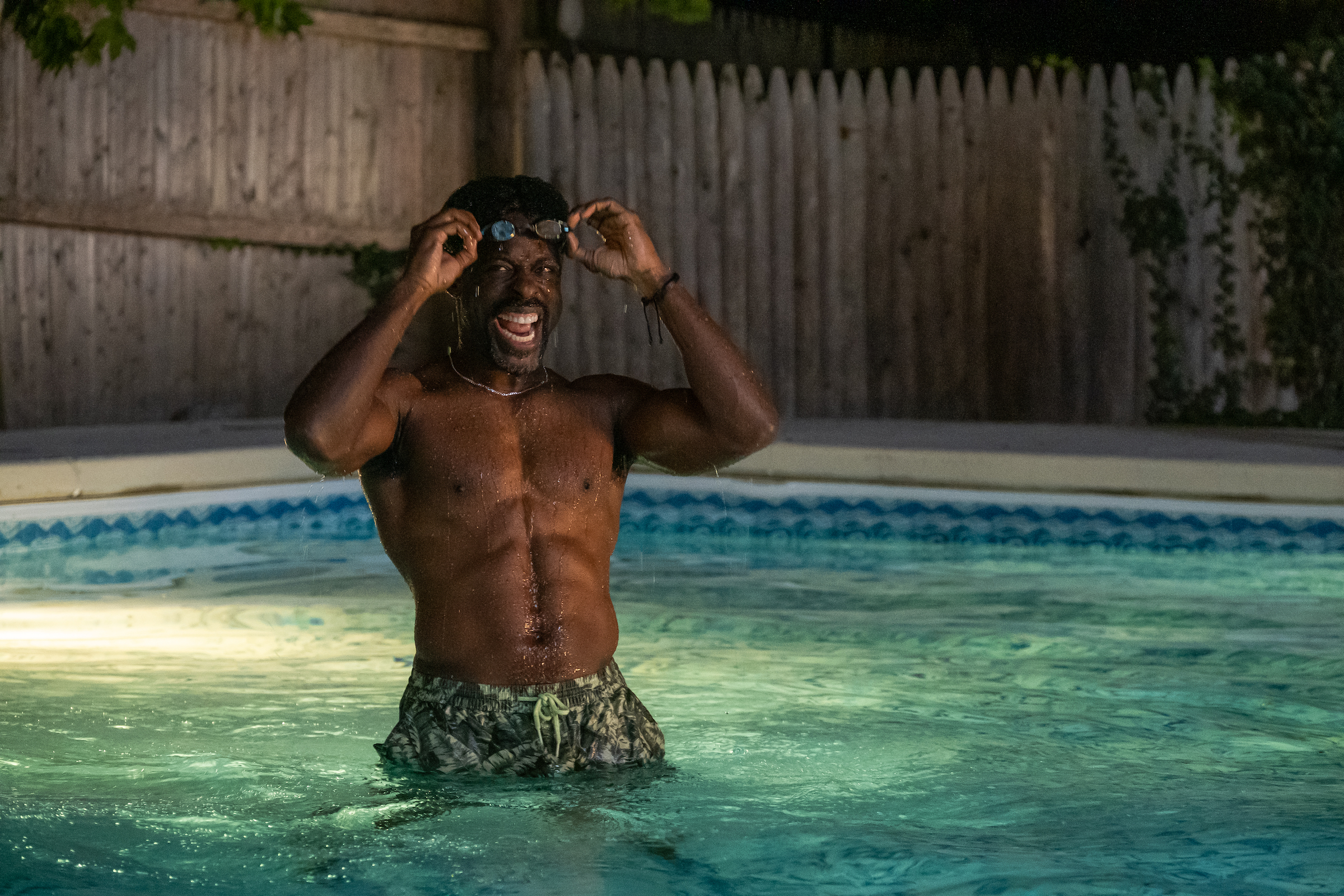
If you’ve read Percival Everett’s sharp yet beseeching 2001 novel Erasure, its film adaptation, American Fiction, might come off as a jauntier sibling, bearing a family resemblance but in a slightly blurry way. The jagged heart of Everett’s novel is literature professor and flailing novelist Thelonious “Monk” Ellison, who becomes so frustrated and affronted by successful novels claiming to capture the “authentic” Black experience—replete with egregious crimes against grammar and plots fixated on pregnancy, poverty, and criminal behavior—that he decides to write his own version of that book under an assumed name. (The one he chooses is Stagg R. Leigh, a pseudonym that goes right over the heads of editors in the white publishing establishment and, later, of the readers who make the book a raging success.)
Everett’s Erasure is bitterly funny, as well as both angry and searching; the film that writer-director Cord Jefferson has made from it is breezier, and its punches don’t land as hard. Even so, American Fiction mostly works, largely because its star, Jeffrey Wright, channels the fighting spirit of Everett’s book even in this more audience-friendly context. This isn’t a case of “the book is better than the movie”; it’s more an instance of a filmmaker figuring out how to address complicated, controversial ideas while balancing tonal nuances. Better to make a smart but approachable movie that lots of people will see rather than one that comes off as medicine. American Fiction isn’t nearly as cutting, or as ultimately moving, as its source material—but that doesn’t make it dismissible.
Jefferson tells us what we’re in for with the opening scene: Wright’s Monk, erudite and justifiably imperious, faces a classroomful of uncomfortable-looking students, most of them white, one of whom is voicing her objection to one word in the title of a Flannery O’Connor story under discussion. (The fact that I’m afraid to even type this word indicates how potent it is.) “I just find that word really offensive,” she says. Monk stares her down: “With all due respect, Britney, I got over it, I’m pretty sure you can too.” His effrontery—perceived, if we’re honest, as uppitiness—lands him in trouble with his boss and colleagues at the university, all of them white, who give him a stern talking-to.
Read more: The 10 Best Movies of 2023
This is just a small taste of the battles Monk keeps fighting, and they rage on the personal front, too. He lives in California, but a trip to Boston for a conference triggers mixed feelings because members of his family still live there. He doesn’t get along terribly well with his sister, Lisa (Tracee Ellis Ross), a feisty doctor who performs abortions, and who’s also in charge of caring for their elderly mother, Agnes (Leslie Uggams), whose faculties are failing. He also has a somewhat estranged brother, Cliff (Sterling K. Brown, in a marvelous, tender performance), a plastic surgeon living in Phoenix who has just lost his wife and kids after they learn that he’s gay. When Lisa dies suddenly, Monk must step up to the plate to care for his mother. He also learns she’s running out of money, and he can’t help much there.

Meanwhile, his blood boils when he sees a hugely successful author, Issa Rae’s Sintara Golden, hawking her runaway best-seller on television: it’s called We’s Lives in da Ghetto, and it’s the kind of book that’s lauded with words like “brutally honest” and other similarly paint-by-numbers accolades. Tipped over the edge—especially after he notices that bookstores file his own books, none of which address issues of Blackness, in the African American Studies section, simply because he’s Black—he embarks on his own creation as an experiment. He titles his novel, about a reckless urban youth who fathers numerous babies among multiple mothers, My Pafology; later, after it’s been bought for big bucks by a prestigious publishing house that knows a gold mine when it sees one, he changes the title to a word that begins with F and ends with K, just to see if he can get away with it. He does.
American Fiction, like the novel it’s based on, tangles with some thorny questions. Monk knows there’s no such thing as a homogeneous Black experience, yet novels fixating on inner-city strife among Black people are the ones generally embraced by the public as being the most “real.” Monk—who’s been trying, and failing, to sell a reworking of Aeschylus’ The Persians—rails against that line of thinking, though he’s also failing to acknowledge that not everyone has had the advantages he has. Late in the film he has a chance to confront Sintara, his nemesis, deriding books like hers as “Black trauma porn” and lamenting that he sees so much more potential in Black America. “Potential is what people see when they think what’s in front of them isn’t good enough,” she shoots back, and she has a point—Monk is blinkered by his own superior education, and the fact that he comes from what would commonly be considered a good family. Eventually, he’s forced to rethink his self-certainty, and a burgeoning romance with a public defender named Coraline (Erika Alexander) is scorched in the process.

Jefferson navigates all of this tricky business with a mix of grace and good humor. (This is his debut feature.) The movie falters here and there, lapsing into sentimentality—with accompanying gushy music—during a wedding scene, and that in-person confrontation between Monk and Sintara happens only because Jefferson has overcomplicated the story’s plot. The movie also flirts, a little too comfortably, with the mushy idea that Monk needs to be nicer before anyone can truly love him.
But really, Monk is perfect the way he is, especially as Wright plays him. Watching this performance makes American Fiction a complex, sometimes discomfiting pleasure. Monk’s exasperation, his occasional failure to acknowledge the suffering of others, the frustration mingled with tenderness he feels for his mother, who’s now so wholly reliant on him: Wright brings it all to life, not with thunderous, statement-making gestures, but with small ones that remind us how vulnerable Monk is, even in the context of his own raging intelligence. We’re all vulnerable—though our own insecurities are no reason to be dismissive of others. That’s one lesson Monk learns in American Fiction, though his view of art, and its power to reflect all manner of real-life experiences, never goes soft. He may seem unforgiving in holding others up to his high standards. But what standards is he supposed to live up to? Low ones? His stubbornness and tenacity make him both maddening and great. With qualities like that, who needs nice?
More Must-Reads From TIME
- The 100 Most Influential People of 2024
- Coco Gauff Is Playing for Herself Now
- Scenes From Pro-Palestinian Encampments Across U.S. Universities
- 6 Compliments That Land Every Time
- If You're Dating Right Now , You're Brave: Column
- The AI That Could Heal a Divided Internet
- Fallout Is a Brilliant Model for the Future of Video Game Adaptations
- Want Weekly Recs on What to Watch, Read, and More? Sign Up for Worth Your Time
Contact us at letters@time.com